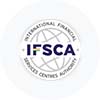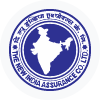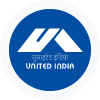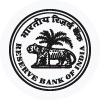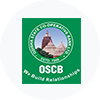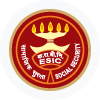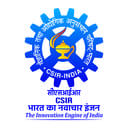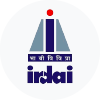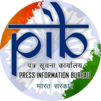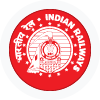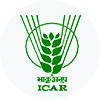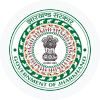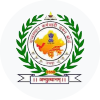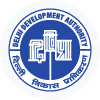IFSCA Grade A Notification 2025
IFSCA (International Financial Services Centres Authority) has announced the vacancies of 20 Assistant Managers. This is a golden opportunity for aspirants who are looking for a government job. Online application restarted from Sep 11 - 25, 2025. A total of 20 vacancies have been announced for IFSCA Grade A posts.
IFSCA Grade A Notification
The notification of IFSCA Grade A was announced on the official website. IFSCA (International Financial Services Centres Authority) is a statutory regulatory body established by an Act of Parliament, to develop and regulate the financial services market in the International Financial Services Centres in India.
IFSCA Notification 2025 Overview
| Particular | Details |
| Organization | International Financial Services Centres Authority (IFSCA) |
| Position | Officer Grade A (Assistant Manager) |
| Total Vacancies | 20 |
| Streams | General (12), Legal (4), Information Technology (4) |
| Application Dates | 11-25 September 2025 |
| Notification Release | 10 September 2025 |
| Age Limit | 21-30 years (relaxations for reserved categories) |
| Minimum Qualification | 60% marks in qualifying degree |
| Phase I Exam | 11 October 2025 (Saturday) |
| Phase II Exam | 15 November 2025 (Saturday) |
| Phase III | Interview (dates to be announced) |
| Selection Process | Phase I → Phase II → Coding Test (IT only) → Interview |
| Application Fee | ₹1,000 (UR/OBC/EWS), ₹100 (SC/ST/PwBD) |
| Basic Pay | ₹62,500/month |
| Gross Salary | ₹1,80,000/month (approx.) |
| Work Location | GIFT City, Gandhinagar (postings across India/abroad) |
| Probation Period | 2 years |
| Website | www.ifsca.gov.in |
IFSCA Grade A Important Dates
IFSCA Grade A official notice was released on September 10, 2025. The application window will remain open from September 11 to September 25, 2025. Phase I will be conducted on October 11, and Phase II will be on November 15, 2025.
| Event | Date |
|---|
| Notification Release | 10 September 2025 |
| Online Application & Fee Payment | 11–25 September 2025 |
| Call Letters Available (Phase I & II) | To be intimated via Email/ SMS |
| Phase I On-line Examination | 11 October 2025 (Saturday) |
| Phase II On-line Examination | 15 November 2025 (Saturday) |
| Interview (Phase III) | To be intimated via Email/ SMS |
| Last Date to Download Interview Call Letter | As per SMS/Email notification |
IFSCA Grade A Vacancies
IFSCA Grade A has declared 20 vacancies this year whcih is more that what it was last year. There are 12 vacancies in the General stream, 4 vacancies for Legal experts, and 4 vacancies for Information Technology experts. These jobs are spread across different categories like Unreserved, OBC, SC, ST, EWS, and PwBD.
| Stream | Number of Vacancies |
| Grade A Officer – General | 12 |
| Grade A Officer – Legal | 4 |
| Grade A Officer – IT | 4 |
| Total | 20 |
IFSCA Grade A Eligibility Criteria
Applicants who want to apply for IFSCA Grade A must be Indian citizens aged between 21 and 30 years as of September 25, 2025, with age relaxations for reserved categories. You also need a bachelor's or master's degree in the relevant stream with at least 60% marks. Below are the details:
| Criterion | General Stream | Legal Stream | IT Stream |
|---|
| Nationality | Indian | Indian | Indian |
| Age Limit | 21–30 years | 21–30 years | 21–30 years |
| Educational | Master's in Finance/Economics/Commerce/Econometrics or Bachelor's in Commerce/ IT/CS/LLB (60% marks) | Bachelor's in Law (60% marks) | Bachelor's in IT/CS/MCA (60% marks) |
| Minimum Marks | 60% aggregate | 60% aggregate | 60% aggregate |
| Applications | Separate form per stream | Separate form per stream | Separate form per stream |
IFSCA Grade A Selection Process 2025
Phase I (Online examination consisting of two papers of 100 marks each) => Phase II (online examination consisting of two papers of 100 marks each) => Phase III (Interview)
Phase I Online Exam
An online screening examination consisting of two papers (Multiple Choice questions of 100 marks each) will be held. The exam consists of:
| Paper | Streams/ Subjects | Maximum Marks | Duration | Cut off |
Paper 1 (Common for both streams) | Multiple choice questionsGeneral awareness (financial sector) -25 questions X 1 mark eachEnglish language – 25 questions X 1 mark each Quantitative Aptitude – 25 questions X 1 mark each Test of Reasoning- 25 questions X 1 mark each | 100 | 60 minutes | 30% |
| Paper 2 | General Stream
Multiple choice questions on General knowledge, Current events of national and international importance, Economic and social development (sustainable development, poverty, inclusion, and demographics), Commerce, Accountancy,Management, Finance and costing, Indian Economy, Global Economy, Five-year plans, Central Government's initiatives/ Schemes in the financial sector.(50 questions X 2 marks each)
Legal Stream
Multiple choice questions on Specialized subject related to stream (Please refer Annexure 2) | 100 | 60 minutes | 40% |
| | Aggregate Cut off | | | 40% |
Note:
- There shall be negative marking (1/4th of marks assigned to the question) for the Paper 1 and Paper 2 in Phase I.
- There shall be a cut-off of minimum 30% for Paper 1 (no sectional cut-off shall be there) and a cut-off of minimum 40% for Paper 2 in Phase I.
- Candidates would need to secure separate cut-off in each paper as mentioned at (ii) above as well as aggregate cut-off marks of 40% in Phase I exam to be shortlisted for Phase II. Marks obtained in Phase I shall be used only for shortlisting the candidates for Phase II examination process and will not be counted for final selection of the candidates.
- Subject to the criteria mentioned at 3 above, all the candidates who clear Phase I shall be shortlisted for Phase II. List of candidates shortlisted for Phase II will be made available on IFSCA website.
- All question papers except the test of English will be set bilingually in Hindi and English.
Phase II On-Line Examination:
An on-line examination consisting of two papers of 100 marks each will take place. The papers shall be as follows:
| Paper | | Maximum Marks | Duration | Cut off | Weightage |
Paper 1 (Common for both Streams) | English (Descriptive Test)
Precis Writing – 35 marks
Essay writing – 30 marks
Comprehension- 35 marks | 100 | 60minutes | 30% | 1/3rd |
| Paper 2 | General Stream
Multiple choice questions on subjects like IFSCA Act, Union Budget, Economic Survey, Banking, Capital Market, Insurance, Pension Funds, Bullion, GIFT City, GIFT IFSC, IFSCA, Global Financial Centres etc.(50 questions X 2 marks each)
Legal Stream Multiple choice questions on Specialized subject related to stream (Please refer Annexure 2) | 100 | 60minutes | 40% | 2/3rd |
| | Aggregate Cut off | | | 40% | |
Note:
- Candidates shortlisted for Phase II will be issued new Hall Tickets.
- There shall be negative marking (1/4th of marks assigned to the question) for Paper 2 in Phase II
- There shall be a cut-off of minimum 30% for Paper 1 and a cut-off of minimum 40% for Paper 2 in Phase II.
- Candidates would need to secure separate cut-off in each paper as mentioned above as well as aggregate cut-off marks of 40% in Phase II exam (weightage of 1/3rd for Paper 1 and 2/3rd for Paper 2) to be shortlisted for Phase III.
- Subject to the criteria mentioned above, candidates equaling 3 times the number of vacancies shall be shortlisted, in order of merit, for Phase III i.e. the Interview. List of candidates shortlisted for Interview will be made available on IFSCA website.
- All question papers except the test of English will be set bilingually in Hindi and English.
Phase III- Interview
Only the shortlisted candidates will be called for interview. Application fee shall not be refunded to the candidates not shortlisted for Phase II and Interview. Weightage of marks obtained in Phase II will be 85%, while marks obtained in interview shall be given a weightage of 15%.
IFSCA Grade A Online Application
Online application has been restarted from Sep 11 - 25, 2025. Applications will be accepted only when you have applied online and have paid the application fee.
Steps to Apply Online For IFSCA Grade A Notification 2025
- Visit the official website of IFSCA by clicking the above link
- Enter the asked details- Your name, email, and mobile number
- A provisional registration number and password will be sent to your registered Email and Mobile number
- On receiving the registration no. and password, log in with those details to complete the application procedure
- Fill up the personal, academic details, and communication details carefully
- Upload the photograph, signature, Left Hand Thumb Impression, and other required details
- Verify the details entered in the form before paying the application fee
- Pay the required application fee
- Your application form for IFSCA Recruitment 2025 will be accepted provisionally.
IFSCA Grade A Application Fee 2025
| Category of Applicant | Amount of Fee (Non-refundable) |
| Unreserved/OBC/EWSs | Rs. 1000/- as application fee cum intimation charges + tax |
| SC/ ST | Rs. 100/- as intimation charges + tax |
IFSCA Grade A Salary 2025
The basic pay of IFSCA Grade A is Rs 62,500 per month. With all allowances, they take home about ₹1.80 lakh every month. Over 17 years, their basic pay rises to Rs 1,26,100. They also get multiple benefits like medical cover, leave travel, and housing support.
| Component | Amount (₹) |
|---|
| Starting Basic Pay | 62,500 per month |
| Gross Salary | 1,80,000 per month |
| Maximum Basic Pay | 1,26,100 per month |
| Allowances Included | Medical, Housing, Travel, etc. |
| Annual CTC Range | 22–24 lakh per year |
Other Benefits
Leave Fare Concession, Medical Expenses, Eye Refraction, Education Allowance, Financial Dailies, Book Grant, Briefcase, Conveyance Expenses, House Cleaning Allowance, Staff Furnishing Scheme, Scheme for Purchasing Computers, Subsidized Lunch Facility and all other benefits as admissible to an Officer in Grade A in IFSCA.
IFSCA Grade A Syllabus 2025
IFSCA Grade A Syllabus for Paper 2 of Phase I in General Stream
1. General knowledge, Current events of national and international importance
2. Economic and social development (sustainable development, poverty, inclusion, and
demographics)
(i) Growth and Development
a) Measurement of growth: National Income and per capita income
b) Poverty Alleviation and Employment Generation in India
c) Sustainable Development and Environmental issues.
(ii) Social Structure in India
a) Multiculturalism
b) Demographic Trends
c) Urbanisation and Migration
d) Gender Issues – Social Justice
3. Commerce and Accountancy
(i) Accounting as a financial information system;
(ii) Accounting Standards with specific reference to Accounting for Depreciation,
Inventories, Revenue Recognition, Fixed Assets, Foreign Exchange Transactions,
Investments.
(iii) Cash Flow Statement, Fund flow statement, Financial statement analysis; Ratio
analysis;
(iv) Accounting for Share Capital Transactions including Bonus Shares, Right Shares.
(v) Employees Stock Option and Buy-Back of Securities.
(vi) Preparation and Presentation of Company Final Accounts
4. Management
(i) Management: its nature and scope; The Management Processes; Planning,
Organization, Staffing, Directing and Controlling;
(ii) The Role of a Manager in an Organization. Leadership: The Tasks of a Leader;
(iii) Leadership Styles; Leadership Theories; A successful Leader versus an effective
Leader.
(iv) Human Resource Development: Concept of HRD; Goals of HRD;
(v) Motivation, Morale and Incentives: Theories of Motivation; How Managers Motivate;
Concept of Morale; Factors determining morale; Role of Incentives in Building up
Morale.
(vi) Communication: Steps in the Communication Process; Communication Channels;
Oral versus Written Communication; Verbal versus non-verbal Communication;
upward, downward and lateral communication; Barriers to Communication, Role of
Information Technology.
(vii)Corporate Governance: Factors affecting Corporate Governance; Mechanisms of
Corporate Governance
5. Finance
(i) Financial System
a) Role and Functions of Regulatory bodies in Financial Sector.
(ii) Financial Markets
a) Primary and Secondary Markets (Forex, Money, Bond, Equity, etc.), functions,
instruments, recent developments.
(iii) General Topics
a) Basics of Derivatives: Forward, Futures and Swap
b) Recent Developments in the Financial Sector
c) Financial Inclusion- use of technology
d) Alternate source of finance, private and social cost-benefit, Public-Private
Partnership
e) Direct and Indirect taxes; Non-tax sources of Revenue, GST, Finance
Commission, Fiscal Policy, Fiscal Responsibility and Budget Management Act
(FRBM),
f) Inflation: Definition, trends, estimates, consequences, and remedies (control): WPI,
CPI - components and trends.
g) Financial Risk Management
6. Costing
(i) Overview of Cost and Management Accounting - Introduction to Cost and
Management Accounting, Objectives and Scope of Cost and Management
Accounting.
(ii) Methods of Costing - Single Output/ Unit Costing, Job Costing, Batch Costing,
Contract Costing, Process/ Operation Costing, Costing of Service Sectors.
(iii) Basics of Cost Control and Analysis - (i) Standard Costing, (ii) Marginal Costing, (iii)
Budget and Budgetary Control.
(iv) Lean System and Innovation:-
a) Introduction to Lean System
b) Just-in-Time (JIT)
c) Kaizen Costing
d) 5 Ss
e) Total Productive Maintenance (TPM)
f) Cellular Manufacturing/ One-Piece Flow Production Systems
g) Six Sigma (SS)
h) Introduction to Process Innovation and Business Process Re-engineering (BPR).
7. Indian Economy & Global Economy
(i) Demand and Supply, Market Structures, National Income: Concepts and
Measurement, Classical & Keynesian Approach Determination of output and
employment, Consumption Function, Investment Function, Multiplier and
Accelerator, Demand and Supply for Money , IS – LM, Inflation and Phillips Curve,
Business Cycles
(ii) Balance of Payments, Foreign Exchange Markets, Inflation, Monetary and Fiscal
Policy, Non-banking Financial Institutions.
(iii) Role of International Financial Institutions: BIS, IOSCO, IMF & World Bank.
8. Central Government's initiatives/ Schemes in the financial sector.
IFSCA Grade A Syllabus for Paper 2 of Phase II in General Stream
1. IFSCA Act, IFSCA, IFSC, GIFT IFSC, GIFT City and Global Financial Centres
2. Union Budget — Concepts, approach and broad trends & Economic Survey
3. Banking
(i) Structure and Functions of Financial Institutions
(ii) Functions of Reserve Bank of India
(iii) Banking System in India – Structure and Developments, Financial Institutions –
SIDBI, EXIM Bank, NABARD, NHB, NaBFID etc.
(iv) Recent Developments in Global Financial System and its impact on Indian Financial
System
(v) Role of Information Technology in Banking and Finance
(vi) Non-Banking System
(vii)Developments in Digital Payments
4. Capital Market
(i) Role and Functions of Regulatory bodies in Financial Sector.
(ii) Primary and Secondary Markets (Forex, Money, Bond, Equity, etc.), functions,
instruments, recent developments
(iii) Basics of Derivatives: Forward, Futures and Swap
(iv) Spot and Derivative market of Precious Metals
5. Insurance
(i) History of Indian Insurance, principles of Insurance;
(ii) Risk and uncertainty, pooling and diversification of risk, Indemnity and Insurable
interest;
(iii) Legal foundations of Insurance, basics in Group/Health Insurance/Pensions;
Intermediation: role in mobilising savings, evolution of various types and
Bancassurance in India;
(iv) Functions performed by Insurers: Product design, pricing, distribution, underwriting,
claims, Investment and Reinsurance;
(v) Insurance lines and products: Property-Liability, Life Insurance and Annuities and
Health Insurance; Liability risks and Insurance, valuation and Solvency requirements,
Specialist Insurance lines in India - Agricultural and Export Credit Guarantee;
Reinsurance, GIC of India, obligator sessions and retention of risk within the
Country.
6. Pension Sector
(i) Status of pension sector in India
(ii) Types of retirement schemes in India and their features
(iii) National Pension System
(iv) Atal Pension Yojana
(v) Annuity Plans
(vi) Basics of investment
IFSCA Grade A Syllabus for Paper 2 of Phase I & II in Legal Stream
| Phase I |
Sl. No. | Subject | Weightage* |
| 1 | Constitution of India – Preamble, Part I, Part III, Part IV, Part IVA, Part V, Part VI, Part VIII, Part IXA, Part IXB, Part XI. | 20% |
| 2 | Contract Law – Indian Contract Act, 1872; Sale of Goods Act, 1930; Indian Partnership Act, 1932; Specific Relief Act, 1963. | 25% |
| 3 | Code of Civil Procedure, 1908 – (Part I, Part II, Part III, Part IV, Part V, Part VII, Schedule 1) | 25% |
| 4 | The Limitation Act, 1963 |
| 5 | Transfer of Property Act, 1882 – Chapter III, Chapter IV, Chapter V. |
| 6 | Arbitration and Conciliation Act, 1996 – Part I |
| 7 | Administrative Law | 20% |
| 8 | Jurisprudence and Interpretation of Statutes |
| 9 | Important Latin terms and maxims |
| 10 | Law of Torts and Consumer Protection Act, 2019 | 10% |
*Weightages are indicative only
| Phase II |
Sl. No. | Subject | Weightage* |
| 1 | Criminal Law – Indian Penal Code, 1860 (Chapters I, II, III, IV, V, VA, VI, IX, XVII, XXI, XXII, XXIII); Code of Criminal Procedure, 1973. | 30% |
| 2 | Law of Evidence – Indian Evidence Act, 1872 |
| 3 | Corporate Law – Companies Act, 2013; Limited Liability Partnership Act, 2008; Insolvency and Bankruptcy Code, 2016 (Part I, Part II) | 30% |
| 4 | IFSCA Act and the following Acts: - The Reserve Bank of India Act,1934
- The Insurance Act, 1938
- The Banking Regulation Act, 1949
- The Securities Contracts (Regulation) Act,1956
- The Deposit Insurance and Credit Guarantee Corporation Act, 1961
- The General Insurance Business (Nationalisation) Act, 1972
- The Securities and Exchange Board of India Act, 1992
- The Depositories Act, 1996
- The Insurance Regulatory and Development Authority Act, 1999
- The Foreign Exchange Management Act, 1999
11.The Credit Information Companies (Regulation) Act, 2005
12.The Government Securities Act, 2006
13.The Payment and Settlement Systems Act, 2007
14.The Pension Fund Regulatory and Development Authority Act, 2013
The Factoring Regulation Act, 2011 | 40% |
*Weightages are indicative only
IFSCA Grade A Exam Centres
| Ahmedabad/ Gandhinagar | Hyderabad/ Rangareddy | Nasik |
| Agartala | Indore | New Delhi-NCR |
| Aurangabad (MH) | Jaipur | Panaji |
| Bengaluru | Kanpur | Patna |
| Bhubaneswar | Kochi/ Ernakulam | Prayagraj |
| Chandigarh/ Mohali | Kolkata/ Greater Kolkata | Pune |
| Chennai | Lucknow | Raipur |
| Coimbatore | Madurai | Ranchi |
| Dehradun | Meerut | Siliguri |
| Guwahati | Mumbai/ Greater Mumbai/ Navi Mumbai/ Thane | Surat |
| Haldwani | Muzzafarpur | Vijayawada |
| Hubli – Dharwad | Nagpur | Vishakhapatnam |
Note:
- Candidates can provide their preference of upto three centers for Phase I and one center for Phase II in the online application.
- The choice of Center by candidates for Phase I and Phase II Examinations can be different and must be indicated in the online application.
- Candidates will appear for the examination at an Examination Centre at their own risks and expenses. IFSCA does not make any arrangements for boarding/lodging of candidates. IFSCA will not be responsible for any injury or losses etc. of any nature during the course of Examination.
 Download Notification
Download Notification
 Mock Tests
Mock Tests Category
Category







